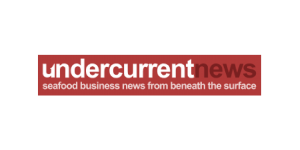The potential impact of the UK’s exit from the European Union is a source of concern for some fish and seafood companies, both local and foreign, operating in the Falkland Islands, Undercurrent News has learnt.
As a UK overseas territory post-Brexit, customs duties for Falklands’ fish and seafood products exported to EU markets might be raised, some fear.
UK and EU representatives will work out the details of the new trade deal during the ongoing negotiations. Those have recently struck an agreement to move to trade talks and could enter a two-year transition period after the UK officially leaves the EU in March 2019, the BBC reported.
Brexit could not only mean the introduction of new entry fees, but it could also translate to increased paperwork, delays and extra administration with the 27 remaining EU members, as a new customs system is established.
“Brexit is a real concern. Clearly we are concerned about the [potential] effect will have on our exports and the duties that we will have to pay to sell fish in our established markets, in Europe,” James Wallace, director of Falkland Islands-based Georgia Seafoods, told Undercurrent News. “As if selling seafood from the Falklands wasn’t already difficult enough.”
Another fishing sector source in the islands agreed.
“It’s going to make our lives a bit more difficult,” he said, speaking on condition of anonymity.
The second source noted that fishing products from the Falklands would receive tougher competition from products fished by Spanish companies operating in nearby waters. Those companies do not need to pay taxes to enter the European market.
A source from a Spanish firm, which sells Falklands’ squid in Spain and other European markets, also said he was worried.
“I have no news of how Brexit may affect [our business with products from the Falklands]. We have asked the question but there is uncertainty. At the moment it seems that in the short- and medium-term, the prospect is of maintenance of the current state,” the Spanish source noted.
Fishing licenses are handled directly by the Falklands’ government, the Spanish source pointed out.
“They have their scientific adviser to determine fishing zones and periods and manage it [the fishery] autonomously,” he said, adding that fishing licenses were owned mainly by Falklands’ firms.
“This will not affect us,” he said, pointing out that his firm was buying product from the Falklands and selling it in Europe, describing the company as “a reference supplier from this origin”.
“If there is no product and access conditions to the European Union [change], this will affect us,” he added.
He stressed the introduction of a tax on Falklands’ products would make them less competitive in European markets, pointing out that the rise in Argentina’s export duty in the last few years caused that country’s products to be less competitive.
“The Malvinas’ is now a zero-tariff product. It is very complicated to be competitive in the EU with a 12% duty,” he said, using Argentina’s Spanish-language name for the disputed islands.
At present, Argentine fish seafood exports to the EU have to pay taxes ranging from 12% to 15% depending on the product. In contrast, Falklands exports to the EU are currently duty free.
Meanwhile, the United Kingdom’s Department for Environment, Food and Rural Affairs, now led by the pro-Brexit Michael Gove, will use its own fleet to keep the Europeans away: a squadron of armed patrol boats will deter foreign trawlers after Brexit, the Times reported.
One of those new patrol vessels will be sent to the Falklands.
HMS Forth, which is undergoing sea trials, will have a 30mm gun, machine guns and a helicopter when it enters service next year. Four other ships are being built at a cost of £350 million ($468m) with one going to the Falklands, according to the Times.
The British government has established a joint maritime operational coordination center to coordinate all sea-based patrol activity across marine agencies to derive maximum surveillance benefit.
Loligo and Illex squid usually account for around 75% of annual catches of some 200,000 metric tons, according to a 2014 presentation from the Falkland Islands’ government, and are destined for markets in Europe and Asia.
The remainder of the catches consist of various finfish species including rock cod, hake, hoki and toothfish, according to the presentation.
